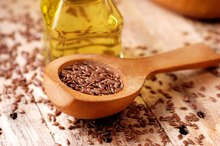Itchy Mouth After Eating Fresh Fruit
It may sound strange, but eating fresh fruit can cause your mouth to itch if you have seasonal allergies. Shortly after you eat fresh fruit, you may develop symptoms, such as an itchy sensation in your mouth, throat or nasal passages. This is caused by a condition called oral allergy syndrome. Oprah.com states that if you’ve been diagnosed with hay fever, or an allergy to pollen, you may experience minor allergy symptoms after eating fresh fruits. Some of the proteins found in various fruits may be confused by the body as various types of pollens, triggering a release of histamine.
Itchy Mouth
If your only symptom is an itchy mouth, you are experiencing oral allergy syndrome. This condition typically only affects the mouth. It is not considered a food allergy but rather cross-reactivity related to a pollen allergy. If you develop other symptoms aside from an itchy mouth, such as asthma, hives or digestive problems, you may have a food allergy. Make an appointment with your doctor to determine the cause and the most effective treatment for your condition.
Fresh Fruit
Honeydew Melon and Numb Lips
Learn More
The Food Allergy and Anaphylaxis Network states that cooking fruit before ingesting it may help prevent an itchy mouth. If your body confuses the proteins in the fresh fruit for pollen, it will release histamine in the localized area of the mouth to protect the body from allergen, although it’s harmless. Some people may experience other symptoms related to hay fever, such as nasal drainage, sneezing, stuffy nose, eye irritation and throat irritation. Adults are more commonly affected by this condition in comparison to children, according to the Children’s Hospital of Philadelphia.
Types of Pollen and Fruit
If you’re allergic to birch pollen, the following fresh fruits may trigger oral allergy syndrome: pears, peaches, apples, apricots, cherries, plums, prunes, kiwi and nectarines. Eating bananas, watermelon, honeydew or cantaloupes can cause an itchy mouth if you’re allergic to ragweed. Certain grass pollen can cause your mouth to itch when you eat oranges, tomatoes, melons or peaches. Consuming pears, apples, cherries and peaches can cause oral allergy syndrome if you’re allergic to alder pollen, according to the Children’s Hospital of Philadelphia.
Treatment
Fruit Pectin Allergies
Learn More
If cooking the fruit doesn’t prevent developing an itchy mouth, talk to your doctor about sublingual immunotherapy. This is a treatment used for oral allergy syndrome that uses a tiny amount of the allergen that’s placed under the tongue to desensitize the body to the allergen, according to the John Hopkins Sinus Center.
Related Articles
References
Writer Bio
Diane Marks started her writing career in 2010 and has been in health care administration for more than 30 years. She holds a registered nurse license from Citizens General Hospital School of Nursing, a Bachelor of Arts in health care education from California University of Pennsylvania and a Master of Science in health administration from the University of Pittsburgh.









